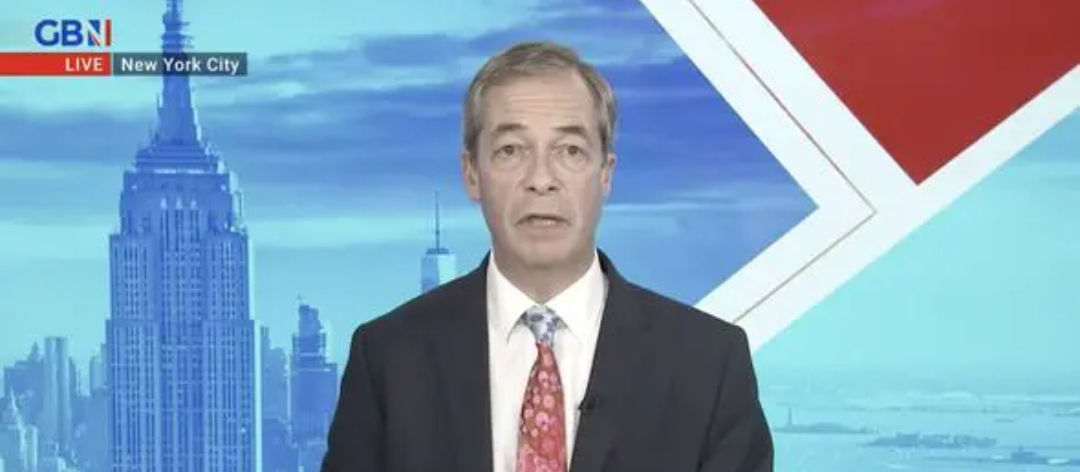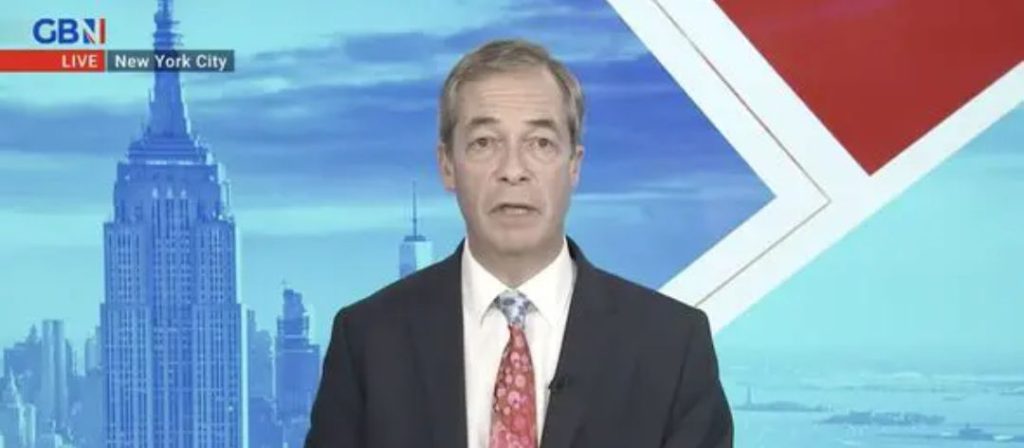
Nigel Farage has taken aim at the pro-mass migration establishment, asserting that a groundbreaking report published by the Express has shattered the long-standing argument in favor of uncontrolled immigration. The report, unveiled yesterday, delves into the real financial toll of jobless migrants and foreign students, prompting Farage to claim vindication after two decades of campaigning.

According to reports by Express News, Broadcasting from New York City on GB News, Farage declared, “For over two decades, I’ve made the argument that uncontrolled mass immigration… was putting pressure on housing, on GP appointments, and yes – the number of cars on the road.” He recalled being ridiculed and abused for raising these concerns, emphasizing that the report’s findings now validate his stance.
Despite the widespread public unease regarding the strain on public services due to mass migration, Farage highlighted that proponents of migration still argue its economic benefits. He recalled a past encounter with Nick Robinson at the BBC, where the economic advantages of immigration were touted, to which Farage responded, “I couldn’t really care less!”
According to the Centre for Migration Control’s dossier, the report exposes a staggering cost to British taxpayers. Since 2020, unemployed migrants alone have allegedly incurred a monumental £24 billion burden, soaring to an even higher £36 billion when factoring in international students. The figures, based on official data from the Office for National Statistics, present a significant challenge to the narrative that mass migration is beneficial for the economy.
Robert Bates, Research Director at the Centre for Migration Control, detailed that the £24 billion cost primarily arises from economically inactive immigrants, not those actively seeking employment. Bates revealed that 1.1 million economically inactive individuals who arrived on visas have contributed to this hefty financial toll, covering services such as education, police, transport, and housing.
Farage, dubbing the sum “eye-watering,” questioned why such figures were not previously unveiled. Bates attributed this to a pro-migrant consensus within Westminster and Whitehall, suggesting a reluctance to delve into the true cost of unemployed migrants until now.
The report also challenged the assumption that foreign students contribute positively to the economy. Bates argued that they remain a “net negative” as taxpayers continue to fund services for them beyond their student fees.
Farage concluded by predicting increased exposure for the Centre for Migration Control’s calculations, hinting at a potential shift in the ongoing debate surrounding immigration’s impact on the British economy and public services. As the establishment faces these revelations, Farage hinted that GB News viewers might witness further revelations in the near future.




